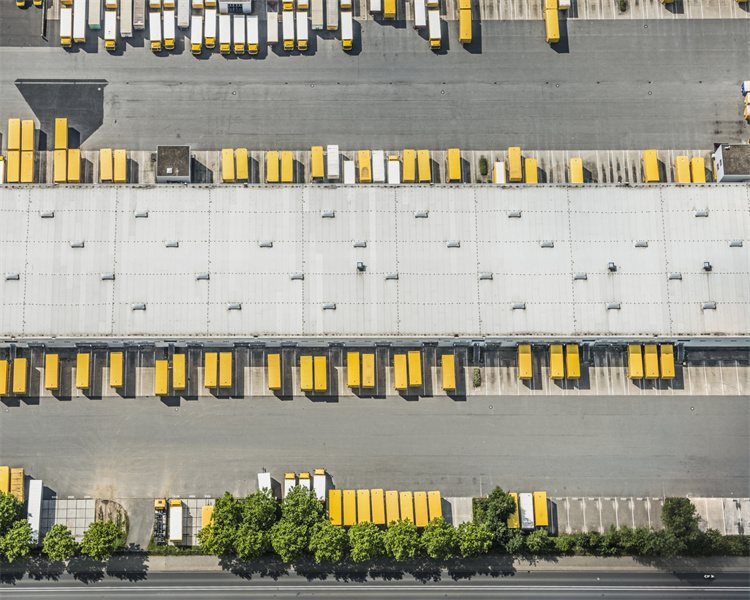The Impact of Smart Cities on Global Logistics Trends

Smart cities transform urban landscapes with advanced technology and connectivity. Global logistics, essential for moving goods efficiently, intersects with these innovations. Understanding this intersection enhances supply chain efficiency. The global market for smart cities is expected to grow significantly, reaching $820.7 billion by 2025. This growth impacts logistics trends, driving new efficiencies and opportunities. The evolving landscape of logistics requires adaptation to these technological advancements, ensuring seamless integration and improved service delivery.
Understanding Smart Cities
Key Features of Smart Cities
Digital Infrastructure
Smart cities rely on robust digital infrastructure. This infrastructure includes high-speed internet, wireless networks, and advanced communication systems. These elements support seamless connectivity and data exchange. Urban areas become more efficient with this technology. Traffic management and public services benefit from real-time data.
Data-Driven Decision Making
Data-driven decision making plays a crucial role in smart cities. Authorities collect and analyze vast amounts of data. This information helps optimize urban planning and resource allocation. Cities improve sustainability and livability through informed choices. Efficient waste management and energy use result from these strategies.
Role of Technology in Smart Cities
Internet of Things (IoT)
The Internet of Things (IoT) forms the backbone of smart cities. IoT connects devices and systems across urban environments. Sensors monitor traffic, air quality, and energy consumption. Real-time tracking enhances logistics and transportation. IoT enables cities to respond swiftly to changing conditions.
Artificial Intelligence (AI)
Artificial Intelligence (AI) revolutionizes smart city operations. AI algorithms process complex data sets. These algorithms predict trends and automate processes. Urban areas benefit from improved efficiency and reduced costs. AI supports smart traffic systems and public safety measures.
Impact on Global Logistics
Enhanced Efficiency
Real-Time Tracking
Smart cities revolutionize logistics with real-time tracking. Sensors and IoT devices monitor shipments continuously. Logistics managers access precise data at any moment. This capability reduces delays and enhances reliability. Companies improve customer satisfaction by providing accurate delivery times.
Automated Warehousing
Automated warehousing transforms storage operations. Robotics and AI streamline inventory management. Warehouses process orders faster and more accurately. Businesses reduce labor costs and minimize errors. Smart cities enable seamless integration of these technologies, boosting overall efficiency.
Cost Reduction
Optimized Supply Chains
Smart cities optimize supply chains through advanced analytics. Data-driven insights identify inefficiencies in logistics networks. Companies adjust routes and schedules for maximum efficiency. This optimization leads to significant cost savings. Integration of 3PL companies further enhances service quality and reduces expenses.
Reduced Energy Consumption
Energy consumption decreases in smart city logistics. Technologies improve energy efficiency by up to 30% over 20 years. Sustainable practices become standard in urban logistics. Companies adopt green transportation solutions to lower emissions. These efforts contribute to a more sustainable future.
Benefits of Smart Cities for Logistics

Improved Sustainability
Green Transportation Solutions
Smart cities prioritize green transportation solutions. Urban planners implement electric vehicles and bike-sharing programs. These initiatives reduce carbon emissions significantly. Renewable energy powers public transportation systems. Cities promote eco-friendly travel options for residents and businesses.
Waste Reduction
Waste reduction becomes a key focus in smart cities. Advanced waste management technologies optimize resource utilization. Cities implement recycling programs and smart bins. These efforts decrease landfill waste and environmental impact. Urban areas achieve greater sustainability through efficient practices.
Increased Connectivity
Seamless Communication Networks
Seamless communication networks enhance logistics in smart cities. High-speed internet and wireless connections support real-time data exchange. Logistics operators access information instantly. This connectivity improves coordination among stakeholders. Efficient communication leads to timely deliveries and satisfied customers.
Integrated Systems
Integrated systems streamline operations in smart cities. IoT devices connect various components of the supply chain. Sensors monitor inventory levels and track shipments. Logistics managers make informed decisions using real-time data. This integration boosts efficiency and reduces operational costs.
Challenges in Integrating Smart Cities with Logistics

Technological Barriers
Infrastructure Limitations
Smart cities face infrastructure limitations that hinder logistics integration. Urban areas require advanced digital infrastructure for seamless operations. Many cities lack the necessary technology to support smart logistics. Inadequate internet connectivity and outdated systems pose significant challenges. Urban planners must invest in modernizing infrastructure to enable efficient logistics.
Cybersecurity Concerns
Cybersecurity concerns present a major challenge in smart city logistics. Smart cities rely on vast amounts of data for operations. Data breaches and cyberattacks threaten the security of this information. Authorities must implement robust security measures to protect data. Encryption and strict regulatory frameworks are essential for safeguarding sensitive information. Ensuring data privacy remains a top priority for smart city stakeholders.
Economic and Social Challenges
High Implementation Costs
High implementation costs deter the integration of smart cities with logistics. Developing smart city infrastructure requires substantial financial investment. Many cities struggle to allocate sufficient funds for these projects. The cost of technology, installation, and maintenance can be prohibitive. Governments and private sectors must collaborate to share financial burdens. Innovative funding solutions can accelerate smart city development.
Public Acceptance
Public acceptance poses a social challenge for smart city logistics. Residents may resist changes brought by smart city initiatives. Concerns about privacy, surveillance, and data usage affect public perception. Authorities must engage communities in the planning process. Transparent communication and education can build trust and acceptance. Public support is crucial for the successful implementation of smart city projects.
Future Perspectives
Emerging Trends
Smart Logistics Hubs
Smart logistics hubs emerge as a pivotal trend in smart cities. These hubs integrate advanced technologies to streamline operations. Urban areas benefit from enhanced efficiency and reduced congestion. Logistics hubs utilize IoT for real-time data exchange. This connectivity ensures seamless coordination among stakeholders. Companies achieve faster processing times and improved service delivery.
Autonomous Vehicles
Autonomous vehicles transform urban logistics landscapes. These vehicles operate without human intervention, enhancing efficiency. Urban areas experience reduced traffic congestion and emissions. Autonomous technology reshapes transportation networks. Businesses benefit from cost savings and timely deliveries. The adoption of autonomous technology reshapes transportation networks.
Long-Term Implications
Global Supply Chain Transformation
Smart cities drive global supply chain transformation. Advanced technologies enable more efficient logistics operations. Companies leverage data-driven insights for strategic decision-making. Supply chains become more agile and responsive to market demands. Enhanced connectivity fosters collaboration among global partners. Businesses achieve greater resilience and competitiveness.
Urban Planning and Development
Urban planning and development evolve with smart city concepts. Planners prioritize sustainable and efficient infrastructure. Cities implement green transportation solutions and renewable energy sources. Urban areas focus on reducing environmental impact and enhancing quality of life. Smart city initiatives promote economic growth and social well-being. Residents enjoy improved amenities and services in modern urban environments.
Smart cities revolutionize urban logistics by integrating technology, data, and connectivity. This integration enables efficient and sustainable movement of goods in crowded environments. IoT and data analytics streamline processes and advance supply chain efficiency. Addressing challenges like infrastructure limitations and cybersecurity concerns is crucial for future growth. Stakeholders must embrace smart city initiatives to harness these opportunities. Collaboration among governments, businesses, and communities will drive progress. The commitment to innovation ensures a resilient and responsive logistics landscape.
See Also
Transforming Transportation: How Supply Chain Innovation Impacts
Navigating Tomorrow: Logistics Evolution Through Digital Solutions
Unraveling Effects: Trends in Logistics Risk Analysis
Boosting Logistics: Unveiling the Power of Big Data
Artificial Intelligence in Logistics: Transforming Future Operations
